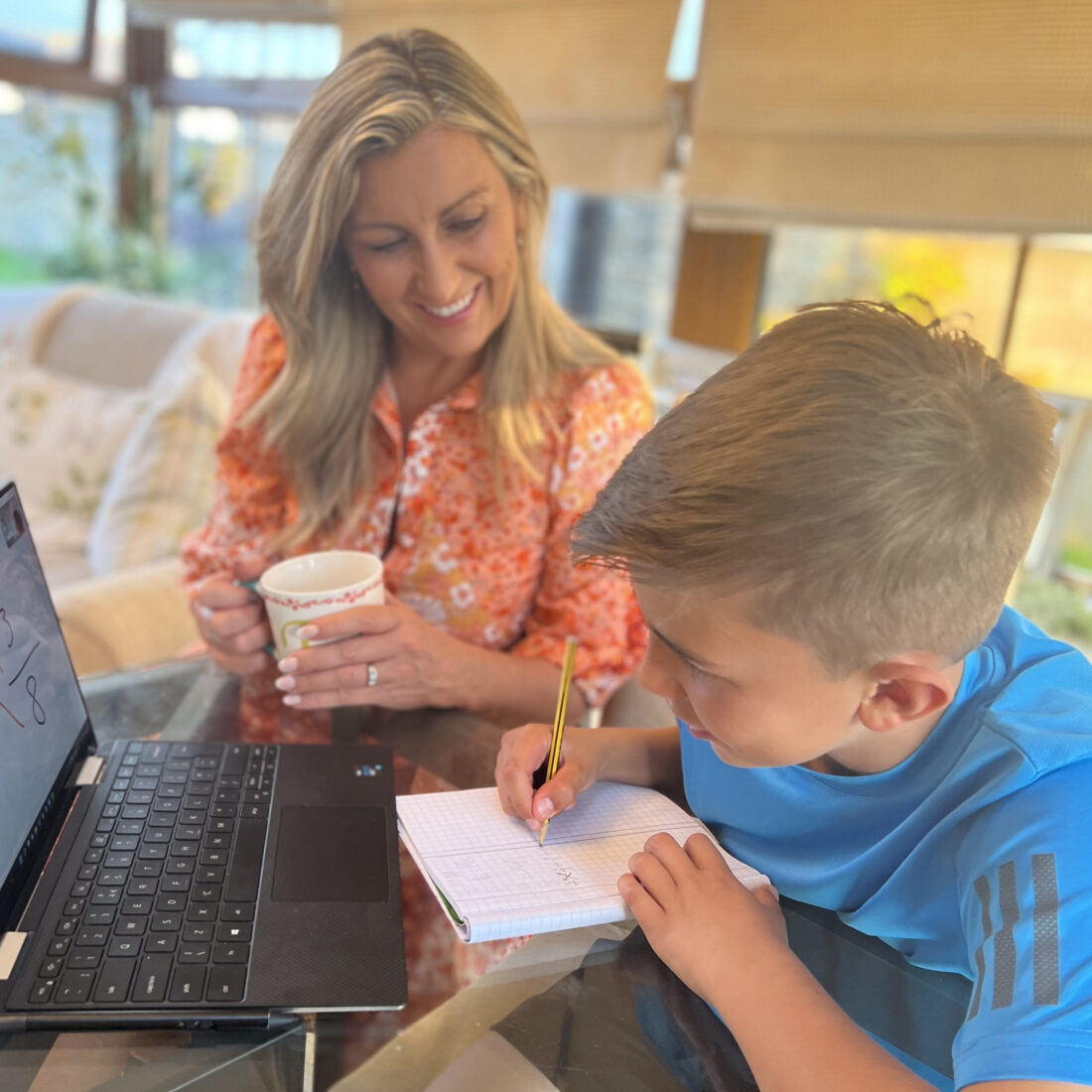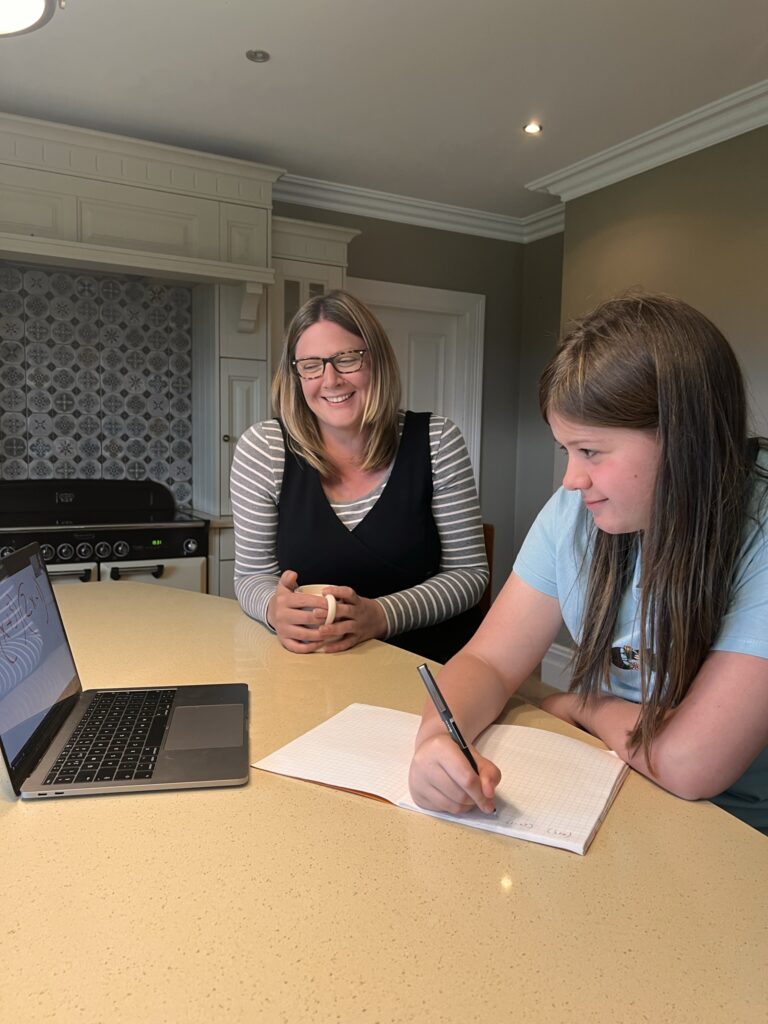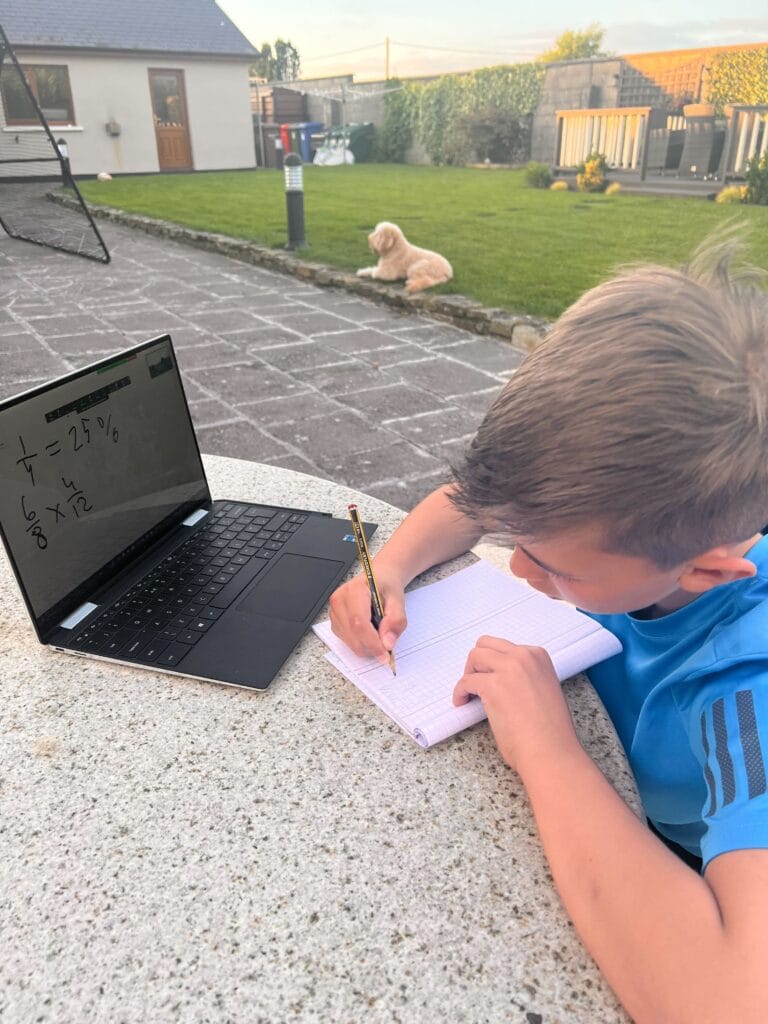
‘How can I help my child with Primary School Maths?’
Let’s be honest. Helping with maths homework isn’t most parents’ idea of fun. Between making dinner, dealing with fighting siblings, and trying to get everyone into bed before 9pm, sitting down to explain long division or fractions can feel like the final straw.
But if your child is in primary school, this is when maths really ramps up. The questions get trickier. The layout of the homework can be confusing. And you might start thinking ‘I don’t even know how to do these questions myself‘.
Well, the good news is you’re not alone. The great news is that you don’t need to be a maths expert either. You just need a solid plan. A three step plan to be specific.
We have taught almost 12,000 students at Breakthrough Maths over the last 5 years. Talking to parents and students alike, a couple of things really work. I can pin it down to about three things:
1) Better Structure
2) Understanding the English
3) Household Effort
Let me explain that in more detail.
Establish a Homework Routine
Here’s the golden rule: routine beats talent every time.
It doesn’t matter if your child is in 3rd class or 6th class. One of the simplest ways to help your child improve in primary school maths is to create a consistent, no-fuss homework routine.
Pick a time. Make it non-negotiable. For most families, half 7 or 8pm after dinner works best. No phones, no TV in the background. Just your child, their maths book, and a calm space. Ideally the kitchen table or anywhere distraction-free.
Tell your child: “This is maths time. We do this every night. Just for 30 minutes.”

According to a 2024 study by the Journal of Family Theory & Review, it was found that when a child has a consistent routine, they have higher cognitive outcomes, improved self-regulation, and increased readiness for school and academia. The correlation between high academic performance and consistent study routines is undeniably positive.
The truth is, most primary school children don’t hate maths. They just feel overwhelmed when it’s done randomly or rushed. When you set a routine, the stress melts away. They know what to expect. And you’re quietly teaching them discipline, focus, and structure. These are skills that they’ll need far beyond the classroom. If they’ve been struggling in maths recently, this structure will give them a chance to reset. You’re showing them, through action: we’ve got a plan here, don’t panic. And it doesn’t need to be forever. Even 2 to 3 weeks of consistent homework time can make a big difference in how they approach problem-solving and exam-style questions.
Focus on Maths Literacy, Not Numeracy
Here’s a maths trick you won’t hear enough. The problem usually isn’t the maths. It’s the English.
This is especially true for 5th and 6th class students. Their maths books are full of word problems. It’ll leave kids scratching their heads in confusion. Not because they don’t know how to add or multiply, but because they don’t actually understand what the question is asking. In other words, the numeracy isn’t the issue. It’s the literacy.
Your job as a parent isn’t to whip out a calculator or start drawing number lines. It’s to help your child decode the language.
Here’s what you can do:
Read the question out loud together. Ask them: “ What do you think it’s really asking?” Help them highlight key numbers and phrases like “altogether,” “how many left,” or “difference between.” Teach them to cross out any irrelevant information.
This kind of question dissection is gold. Especially for kids in primary school who are starting to see more layered and tricky questions. You don’t need to explain the maths. You just need to help them understand the question. Once they’re clear on what’s being asked, they’ll often know exactly what to do.
For example, a 2018 study conducted by the Scientific Studies of Reading found that children who had strong language skills but weaker maths abilities consistently outperformed students with the opposite skillset. Making sense of the question itself is far more important than knowing any formula or calculation.
And the best part? You’re giving them a skill that’s useful in every subject—not just maths.
Make Primary School Maths Tests a Family Mission
When your child in 5th or 6th class has a maths test coming up, it shouldn’t just be their problem. It should be something the whole family is aware of and supporting. Here’s a simple thing that works wonders: Stick the test date on the fridge. Seriously.
Write it on a bit of paper. Circle it. Talk about it. Let your child see that everyone is aware and invested. Why? Because when primary school children know that their parents care, they care more too. This doesn’t mean pressuring them or making it a high-stakes event. It’s saying: “Hey, that maths test is next Thursday—want to do a practice run on Tuesday?” or “If you put the work in this week, we’ll all go for a treat on Friday.” You’re showing them: we’re in this together.

In 2022, a study conducted on over 9,000 students by the School of Humanities and Social Sciences found that a supportive family environment has a strong correlation with better academic performance. It can be difficult for a student to focus if they feel like they don’t have a solid support system.
This kind of support turns maths from a lonely task into a team effort. And for kids at this age, that shift in mindset is huge. They no longer feel like they’re failing on their own. They feel like they’ve got backup. So, it’s not about having all the answers. It’s about being present. That’s the best support system you can offer your child in primary school.
Just Be There for Them
Here’s the big message for every parent reading this: Your child doesn’t need you to explain long division or algebra. They need you to make space for maths in their daily routine. They need you to help them understand the questions, not just the answers. And they need you to back them, especially when a test is coming up.
If your child is in primary school, especially in 3rd or 4th class, now is the time to build these habits. Because the habits they build in maths now will follow them into secondary school and far beyond. So next time they say, “I don’t understand this, can you explain it?” you don’t need to panic. You just need to sit beside them and say, “Let’s figure it out together.” That’s more powerful than any maths formula. So, you don’t need to be wondering ‘how can I help my child with primary school maths?’. You know what to do now.
If all else fails and neither you nor your child know where to begin when studying, read my post about the ‘Think In Ink’ study method. It’s the most definitive and effective way to study.
And if you ever feel stuck, reach out. That’s what Breakthrough Maths is here for you, to help build that Maths confidence of every child.


